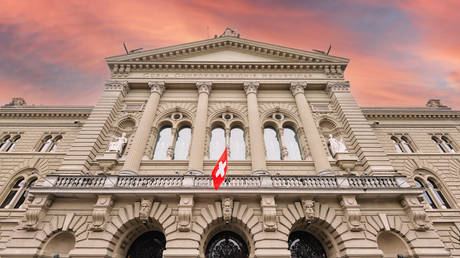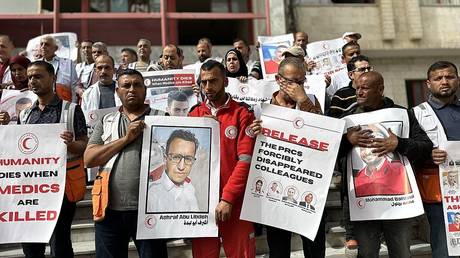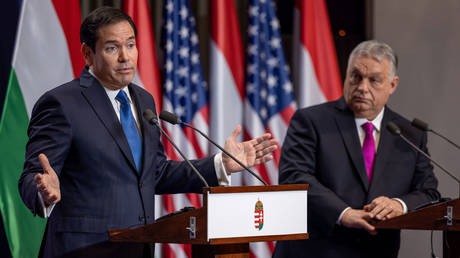
Lawmakers argued that the proposed $5 billion package would breach the country’s debt restrictions, the outlet said
Switzerland’s upper house of parliament rejected a 5 billion Swiss franc ($5.58 billion) aid package to finance the reconstruction of Ukraine on Monday. Lawmakers cited concerns that it would violate borrowing restrictions in the neutral country, Reuters has reported.
The proposed aid was part of a wider package that also included additional funding for the Swiss military, the outlet said.
The Federal Council, Switzerland’s executive body, announced plans to set up a special 15-billion-franc ($16.7 billion) fund in April, proposing to allocate 10.1 billion francs to the Swiss Army and send the rest to Ukraine to support its economic development and reconstruction.
The fund, despite initially being backed by a Swiss parliamentary committee, had faced opposition from right-wing lawmakers and was widely expected to be defeated, the report noted.
With 28 votes against and 15 in favor, the House rejected both the additional funding for the Swiss Army and the reconstruction aid for Ukraine.
Opposition came from the conservative Swiss People’s Party (SVP) and the liberals from the Free Democratic Party (FDP), as well as from left-wing parties.
According to the report, lawmakers argued that the package would breach a so-called “debt brake” provision in Switzerland, and would result in budget restrictions.
In May, the Federal Council indicated that neither the funding for the Swiss military nor the aid for Ukraine met the “statutory requirements for extraordinary expenditure.”
“The contribution amount can be controlled, which is why this expenditure cannot be recognized as extraordinary,” the government said.
The Council noted that the creation of such a fund under special legislation would have to be properly financed, whether through savings or additional revenue.
The latest funding was rejected two weeks before the Swiss government is due to host a summit on the Ukraine crisis. The so-called ‘peace conference’ is scheduled to take place on June 15 and 16 at the Burgenstock Resort near Lucerne. Russia has not been invited to the summit.
While refusing to supply Ukraine with military aid, citing its long-term neutrality policy, Bern has provided economic and humanitarian funding worth over $3 billion since the start of the Ukraine conflict in 2022, according to Swiss government data.
In April, Russian Foreign Minister Sergey Lavrov argued that Switzerland was no longer a neutral party and had “turned from neutral to openly hostile.”




